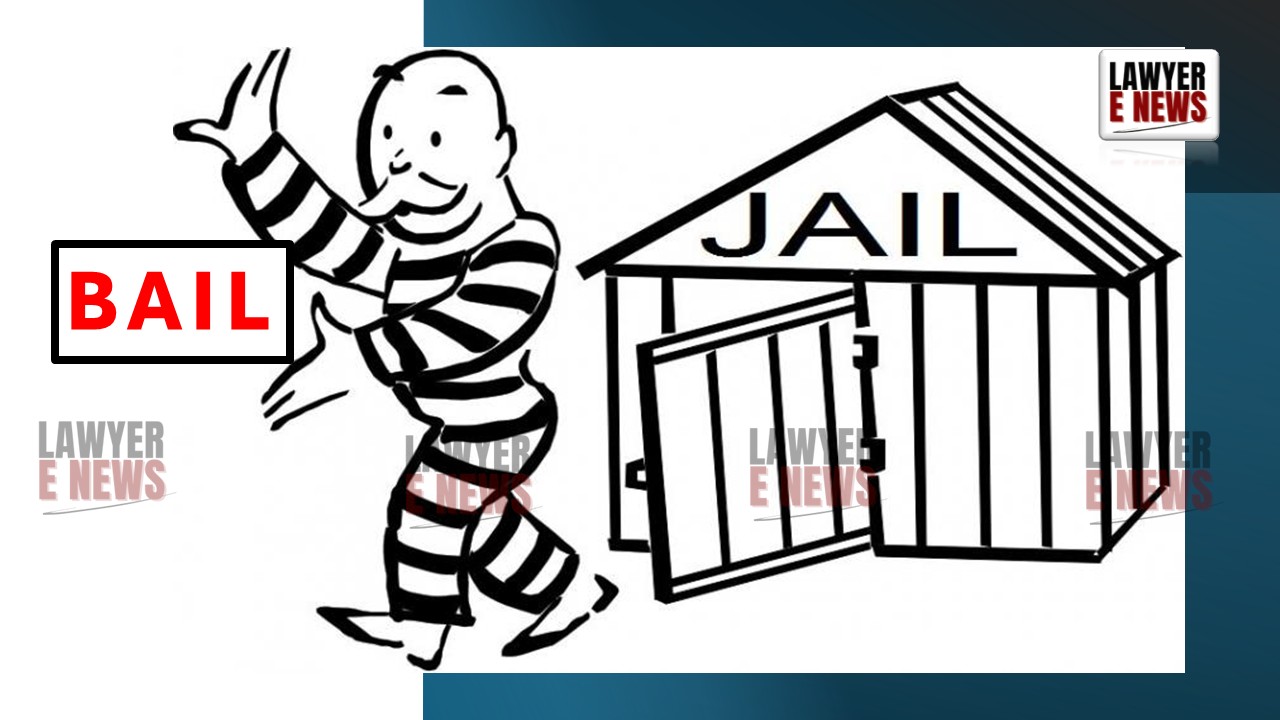-
by Admin
15 February 2026 2:36 AM



Bail Jurisdiction Must Adhere to Statutory Rigors of Special Laws like MCOCA," In a significant ruling Supreme Court. set aside a Bombay High Court order granting bail to two accused under the Maharashtra Control of Organized Crime Act, 1999 (MCOCA).
The Court found that the High Court:
1. Improperly analyzed evidence, amounting to a "mini-trial," and
2. Failed to follow the stringent conditions under Section 21(4) of MCOCA for granting bail.
The bench, comprising Justice C.T. Ravikumar and Justice Sanjay Karol, remanded the bail application for fresh consideration while allowing the accused to remain on bail under the same conditions until the High Court revisits the case.
Improper Observations on Merits Prejudiced Trial
The Supreme Court noted that the High Court made specific findings on the roles of the accused in the crime while deciding their bail application. These findings, the Court ruled, could undermine the fairness of the trial and prejudice the prosecution’s case.
For example, the High Court had observed:
• “There is no evidence even to suggest that accused Nos.1 and 2 were directly or indirectly in contact with the gang leader accused No.4.”
• “It is seen that in the incident of shooting, no role was played by accused Nos.1, 2, and 3.”
The Supreme Court strongly criticized these observations, stating:
"At the bail stage, courts are required to consider the prima facie case, not to conduct a mini-trial or make findings that could influence the trial's outcome."
Failure to Comply with Stringent Bail Conditions under MCOCA
Section 21(4) of MCOCA imposes strict conditions for granting bail, requiring the accused to demonstrate that:
• There is no prima facie case against them, and
• They are not likely to commit any offense if released on bail.
The Supreme Court held that the High Court failed to apply these rigorous statutory requirements. Instead, it delved into the sufficiency of evidence and the roles of the accused in the alleged conspiracy, which is impermissible at the bail stage.
The Court emphasized:
"When a special statute like MCOCA imposes specific conditions for bail, the courts must strictly adhere to those statutory requirements."
Evidence Must Not Be Evaluated at Bail Stage
The Apex Court reaffirmed that materials collected during investigation are not "evidence" at the bail stage. Their admissibility and evidentiary value are matters for the trial court to decide.
The judgment stated:
"Appreciating materials for forming a definite opinion on the roles played by the accused is outside the scope of bail consideration. Such observations could prejudice the prosecution and hinder a fair trial."
Accused Can Remain on Bail Pending Fresh Consideration
Recognizing that the accused had already been on bail since November 2023, the Court allowed them to remain on bail under the same conditions until the High Court reconsiders their application.
Case Background
The Crime
The case arose from a dispute over land in Pune between the deceased, Rajesh Haridas Kanabar, and the families of the accused. On October 5, 2020, Kanabar was shot dead near the Pune Collector's office, allegedly by accused No.4, Hasmukh Patel, a member of an organized crime syndicate.
The prosecution alleged that the accused had conspired to kill Kanabar for personal gain, with Patel executing the plan. Initially, the case was registered under the Indian Penal Code, Arms Act, and Maharashtra Police Act. Later, MCOCA charges were added through a supplementary charge sheet, citing an organized crime syndicate’s involvement.
High Court’s Bail Order
The Bombay High Court granted bail to two accused (Nos.1 and 2), observing that:
• There was no direct evidence of their involvement in the murder or their links to the organized crime syndicate.
• The accused were not in contact with the gang leader.
The deceased’s widow, Jayshree Kanabar, challenged this order before the Supreme Court, arguing that the High Court’s findings prejudged the case and bypassed statutory safeguards under MCOCA.
Supreme Court’s Decision
High Court Order Set Aside
The Supreme Court quashed the High Court’s bail order, holding that the observations on the merits of the case were unwarranted and prejudicial.
Matter Remanded for Fresh Consideration
The Court directed the High Court to reconsider the bail application strictly in accordance with the law, particularly Section 21(4) of MCOCA, and without making any prejudicial observations.
Accused to Remain on Bail Pending Fresh Hearing
The Court allowed the accused to remain on bail under the same conditions imposed by the High Court until their application is disposed of.
Expedited Disposal Directed
The Supreme Court urged the High Court to decide the matter within one month, given that the case dates back to 2020.
Legal Principles Reaffirmed
1. Bail in Special Laws Like MCOCA Requires Stringent Scrutiny
Courts must ensure that the statutory conditions for bail under special enactments like MCOCA are fully satisfied.
2. No Findings on Merits at Bail Stage
Courts should refrain from making findings on the roles of accused or the sufficiency of evidence at the bail stage, as this could prejudice the trial.
3. Fair Trial and Judicial Restraint
Judicial restraint is critical at the pre-trial stage to preserve the integrity of the judicial process and ensure a fair trial.
4. Admissibility of Evidence is a Trial Issue
Materials collected during investigation must not be treated as evidence for making conclusive findings during bail consideration.
The Supreme Court’s decision in Jayshree Kanabar v. State of Maharashtra & Ors. serves as a crucial reminder for lower courts to exercise restraint and adhere to statutory safeguards while considering bail applications, particularly under special laws like MCOCA.
By emphasizing the importance of judicial propriety and the right to a fair trial, the judgment reinforces the delicate balance between personal liberty and ensuring justice for victims.
Date of Decision: January 2, 2025
